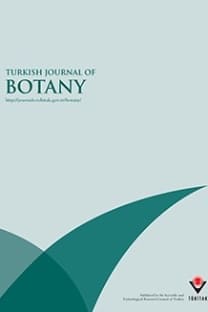Carbon Mineralization of Ceratonia siliqua L. Soils under Different Temperature and Humidity Conditions
The aim of this study was to determine how carbon (C) mineralization of carob (Ceratonia siliqua L., Fabaceae) soils are affected by different temperatures (23 °C and 28 °C) and humidity [field capacity (FC), 80% and 60% of their field capacity] conditions in the laboratory. The carob soils were taken from Çukurova University campus in the eastern Mediterranean region of Turkey. C mineralization of all soils was determined using CO2 respiration method. The microbial activity increased together with temperature increases. The microbial activity in the soils humidified at the field capacity and 60% of it was statistically lower compared to the soils humidified with 80% of field capacity at both 23 °C and 28 °C (P < 0.000). The rate (%) of C mineralization of 80% of field capacity at 28 °C was significantly higher than field capacity (P = 0.009) and 60% of field capacity (P = 0.006) at 23 °C and 60% of field capacity (P = 0.009) at 28 °C. Based on these results, it is possible to conclude that microorganisms in the carob soil show better activities at 80% of field capacity and 28 °C in 30 days.
Anahtar Kelimeler:
Carbon mineralization, Carob, Humidity, Microbial activity, Temperature
Carbon Mineralization of Ceratonia siliqua L. Soils under Different Temperature and Humidity Conditions
The aim of this study was to determine how carbon (C) mineralization of carob (Ceratonia siliqua L., Fabaceae) soils are affected by different temperatures (23 °C and 28 °C) and humidity [field capacity (FC), 80% and 60% of their field capacity] conditions in the laboratory. The carob soils were taken from Çukurova University campus in the eastern Mediterranean region of Turkey. C mineralization of all soils was determined using CO2 respiration method. The microbial activity increased together with temperature increases. The microbial activity in the soils humidified at the field capacity and 60% of it was statistically lower compared to the soils humidified with 80% of field capacity at both 23 °C and 28 °C (P < 0.000). The rate (%) of C mineralization of 80% of field capacity at 28 °C was significantly higher than field capacity (P = 0.009) and 60% of field capacity (P = 0.006) at 23 °C and 60% of field capacity (P = 0.009) at 28 °C. Based on these results, it is possible to conclude that microorganisms in the carob soil show better activities at 80% of field capacity and 28 °C in 30 days.
Keywords:
Carbon mineralization, Carob, Humidity, Microbial activity, Temperature,
- ISSN: 1300-008X
- Yayın Aralığı: Yılda 6 Sayı
- Yayıncı: TÜBİTAK
Sayıdaki Diğer Makaleler
Three New Macrofungi Records from Turkey
Hakan ALLI, Aziz TÜRKOĞLU, Mustafa IŞILOĞLU
Emmanuel Peter ESSIEN, Joseph Peter ESSIEN, Basil Nse ITA
Nutlet Surface Micromorphology of the Genus Nepeta L. (Lamiaceae) in Turkey
Emel ZENGİN, Hüsniye AKA SAĞLIKER, Cengiz DARICI
Heavy Metal Pollution in the Boatin Reserve (Bulgaria)
Vascular Flora of Forest Vegetation in Altındere Valley (Maçka-Trabzon)
Paris quadrifolia L. (Liliaceae): A New Record for the Flora of Turkey
